How to Pay Off Your Mortgage Early
Paying off your mortgage early is a goal many homeowners aspire to achieve, as it offers financial freedom, reduces long-term interest costs, and provides peace of mind. By eliminating one of the largest debts most individuals face, early payoff frees up resources for other financial goals, such as retirement savings, investments, or lifestyle improvements. While it requires careful planning and disciplined execution, there are effective strategies for accelerating mortgage repayment. This article explores methods for paying off your mortgage early and the benefits of achieving this milestone.
Why Pay Off Your Mortgage Early?
The primary motivation for paying off a mortgage early is to save money on interest. Mortgages, particularly those with long terms such as 30 years, result in significant interest payments over time. Reducing the loan term decreases the total interest paid, making homeownership more cost-effective. For example, on a $300,000 mortgage with a 4% interest rate over 30 years, the total interest paid would be approximately $215,000. By paying off the loan early, homeowners can save tens of thousands of dollars.
Another benefit is the financial freedom that comes with eliminating monthly mortgage payments. This allows homeowners to allocate funds toward other priorities, such as travel, education, or building an emergency fund. Early payoff also provides security, as owning a home outright reduces financial obligations and vulnerability during economic downturns.
Understanding Your Mortgage Terms
Before developing a strategy to pay off your mortgage early, it’s essential to understand the terms of your loan. Key factors include the interest rate, loan term, and whether the loan includes any prepayment penalties. Some lenders charge penalties for paying off a mortgage ahead of schedule, which could offset the savings from reduced interest costs. Reviewing your loan agreement and consulting with your lender helps clarify these details.
Understanding your loan’s amortization schedule is also crucial. This schedule outlines how payments are applied to principal and interest over the life of the loan. In the early years, a larger portion of each payment goes toward interest, while principal payments increase over time. Recognizing this structure highlights the importance of making extra payments early in the loan term to maximize interest savings.
Making Extra Payments
One of the simplest and most effective ways to pay off your mortgage early is by making extra payments. Adding even a small amount to your regular payment each month can significantly reduce the loan term and total interest paid. For instance, on a 30-year mortgage, adding $200 to your monthly payment could shave years off the repayment timeline.
When making extra payments, it’s essential to specify that the additional amount should be applied to the principal. This ensures that the extra funds reduce the loan balance directly rather than being applied to future interest payments. Communicating with your lender to confirm how extra payments are processed prevents misunderstandings and maximizes the impact of your efforts.
Refinancing for a Shorter Term
Refinancing your mortgage to a shorter term, such as 15 or 20 years, is another effective strategy for early payoff. Shorter-term loans typically offer lower interest rates, reducing the overall cost of borrowing. While monthly payments are higher, the savings on interest and the accelerated timeline make this option appealing for financially stable homeowners.
Before refinancing, evaluate the associated costs, such as closing fees, and compare them to the potential savings. Refinancing is most beneficial when interest rates are lower than your current rate, and you plan to stay in the home long enough to recoup the costs. Understanding the financial implications of refinancing ensures that it aligns with your payoff goals.
Making Biweekly Payments
Switching from monthly to biweekly payments is another strategy for paying off your mortgage early. With biweekly payments, you make half of your monthly payment every two weeks. Since there are 26 biweekly periods in a year, this results in 13 full payments annually instead of 12. The extra payment reduces the loan balance faster and shortens the repayment term.
Biweekly payments are particularly effective for homeowners with consistent income who prefer a structured approach to early payoff. Some lenders offer biweekly payment options, while others may require you to set up the plan independently. Confirming the terms with your lender ensures that this strategy is implemented correctly.
Applying Windfalls and Bonuses
Using windfalls, such as tax refunds, bonuses, or inheritances, to make lump-sum payments toward your mortgage can accelerate payoff significantly. These one-time contributions reduce the principal balance, which in turn lowers the total interest paid over the life of the loan. Allocating windfalls to your mortgage rather than discretionary spending is a disciplined way to achieve long-term financial benefits.
When applying lump-sum payments, it’s important to inform your lender that the funds should be applied to the principal. This ensures that the payment has the intended impact on reducing the loan balance. Combining this strategy with regular extra payments creates a powerful approach to early payoff.
Reducing Expenses to Increase Payments
Reducing discretionary expenses and reallocating the savings toward your mortgage is a practical way to achieve early payoff. Reviewing your budget and identifying areas for cutbacks, such as dining out, entertainment, or subscriptions, can free up funds for additional payments. Even small adjustments, when applied consistently, can have a significant impact over time.
For example, redirecting $150 per month from discretionary spending to your mortgage payment adds up to $1,800 annually. Over several years, this contributes to substantial principal reduction and interest savings. Maintaining discipline and focusing on the long-term benefits of early payoff helps sustain this strategy.
Benefits of Paying Off Your Mortgage Early
The financial and emotional benefits of paying off a mortgage early extend beyond interest savings. Owning a home outright provides a sense of security and eliminates the risk of foreclosure, offering peace of mind during economic uncertainties. It also enhances cash flow, as funds previously allocated to mortgage payments become available for other uses.
Early payoff can also support retirement planning by reducing fixed expenses. Retirees with no mortgage payments enjoy greater financial flexibility and can allocate their resources toward travel, hobbies, or healthcare needs. Additionally, owning a home outright can be a valuable asset in estate planning, providing financial stability for future generations.
Considering Opportunity Costs
While paying off your mortgage early offers significant advantages, it’s important to consider opportunity costs. Extra funds used for mortgage payments could be invested elsewhere, potentially yielding higher returns. For example, investing in a diversified portfolio may generate greater long-term growth than the savings achieved through early payoff.
Evaluating your financial goals and priorities helps determine whether early mortgage payoff or alternative investments align better with your objectives. Consulting with a financial advisor can provide insights into balancing debt repayment with other wealth-building strategies.
Conclusion
Paying off your mortgage early is a rewarding financial goal that offers long-term benefits, including reduced interest costs, financial freedom, and peace of mind. By understanding your loan terms, making extra payments, and exploring strategies such as refinancing or biweekly payments, you can accelerate your path to becoming mortgage-free. While this goal requires discipline and planning, the sense of accomplishment and security that comes with owning your home outright makes the effort worthwhile. With a clear strategy and commitment, achieving early mortgage payoff becomes an attainable milestone on your journey to financial independence.

